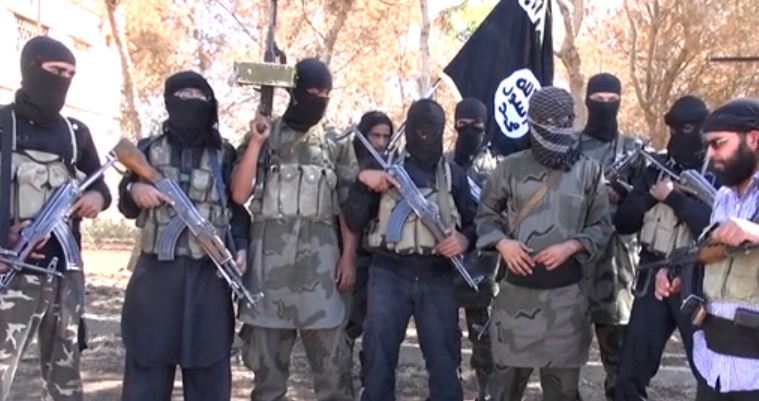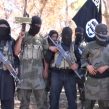
“With These Guns We Will Return to Kurdistan”: The Resurgence of Kurdish Jihadism
Publication: Terrorism Monitor Volume: 12 Issue: 3
By:

Kurdish jihadist militants, who were dealt a devastating blow by the 2003 U.S.-led invasion of Iraq, have recently made a powerful resurgence thanks to the absence of U.S. troops in Iraq and the safe havens for extremism created by the Syrian civil war. Kurdish jihadists with affiliations to al-Qaeda pose a major threat to the Iraqi Kurds, who have successfully built a relatively safe and autonomous enclave in an otherwise war-torn country. Al-Qaeda-affiliated groups carried out bloody attacks in Iraqi Kurdistan in January, increasing worries that Iraq’s only safe region might become engulfed in turmoil.
Kurdish jihadists pose a threat to the Kurdish community’s new-found autonomy in Syria, carrying out suicide attacks in Kurdish cities and elsewhere in Syria against regime positions, including Aleppo. The first sign of trouble for the Iraqi Kurds was the September 25, 2013 attack in Erbil that targeted local security forces, killing six and injuring 60 others in response to security cooperation between Baghdad and the Kurdish Regional Government (KRG) in Erbil (al-Monitor, September 30, 2013). In 2007, al-Qaeda claimed responsibility for a similar attack carried out against the Kurdish interior ministry in Erbil, which killed 19 and wounded 70 (AP, May 9, 2007; AKI Press, May 10, 2007).
Security forces in Kurdistan now fear that Iraqi Kurds with experience in Syria could return and carry out suicide attacks (Niqash, January 23). Over 200 young Iraqi Kurds have gone to Syria to join Islamist armed groups in Syria. It is possible that these Kurds have been trained for suicide missions (al-Monitor, December 14, 2013). It is likely that jihadist Kurds were involved in recent attacks in Erbil, Kirkuk and Sulaymaniya (al-Monitor, November 7, 2013).
The al-Qaeda-affiliated Islamic State of Iraq and Syria (ISIS) threatened the two ruling Iraqi Kurdish parties – the Patriotic Union of Kurdistan (PUK) and the Kurdistan Democratic Party (KDP) – and rebels of the Kurdistan Workers’ Party (PKK) operating in Syria in a video released in November 2013. “With these guns, we will return to Kurdistan [in Iraq] and we will kill all of the members of the KDP, PUK and security forces,” said a masked Kurdish ISIS member who identified himself as Abu Haris al-Kurdi (Kurdpress, November 18, 2013; the video was taken down by YouTube for violating its policy against violence).
For al-Qaeda-affiliated groups, Kurdish nationalism is a form of unbelief and prevents the establishment of an Islamic caliphate. Kurdish Islamism is not something new. Islamism among the Kurds grew in the 1970s and 1980s, influenced by the regional decline of Marxism, the anti-Soviet war in Afghanistan and the Iranian Islamic Revolution of 1979. [1].
Recently, Kurdish security forces carried out several raids on mosques in Sulaymaniya to stop the recruitment of Kurdish youth for the Syrian jihad and increased the monitoring of Iraqi Kurds returning from Syria (Rudaw, December 19, 2013; Niqash, January 23).
Most Iraqi Kurds who have joined al-Qaeda-affiliated groups come from Halabja, the historical stronghold of the Kurdish Islamist movement of Iraq. Lying along the border with Iran, Halabja suffers from poverty and health issues. The city suffered Saddam Hussein’s wrath in 1988, when more than 5,000 people were killed by a chemical weapons attack.
With roots in the Iraqi Muslim Brotherhood, the first Kurdish Islamist party was the Islamic Movement of Kurdistan (IMK), founded in Halabja in 1978 by Shaykh Uthman Abd al-Aziz in Halabja. The movement called for jihad against the Iraqi government. After the Iraqi Kurds became autonomous in 1991, the IMK became the region’s third largest party (after the PUK and KDP) and clashed several times with the PUK. The movement fragmented after it decided to join the KRG in 1997.
Kurdish veterans returning from Afghanistan and Pakistan refused to join a secular government and created radical fringe groups such as Ansar al-Islam, led by cleric Najmeddin Faraj (a.k.a. Mullah Krekar), who is now serving a prison sentence in Norway.
Various Islamist militias controlled parts of Halabja until 2003, when the United States combined with the PUK to launch devastating attacks against Kurdish Islamists at the outbreak of the Iraq war in 2003. These operations dislodged Islamist groups from their territory along the Iranian border. Many militants were killed or captured, while others fled to the country. [1] More radical Kurdish Islamists who feared arrest fled to Iran, Pakistan or other parts of Iraq. As a result, the Islamists lost their stronghold to Talabani’s PUK security forces and were forced to disarm and accept electoral means as a way to power. Although Islamist parties were never able to get the majority of the votes, Islamism increased as a result of endemic corruption and lack of services. [2]
Violent Islamist protests against massage parlors, alcohol shops and blasphemy shows there is a part of the KRG’s population that is open to radicalization. After Islamist riots in Erbil, the Kurdish government closed down a local magazine for insulting Islam (Aknews, May 7, 2012). The United States was worried in 2009 that Kurdish government interference in religious affairs could cause resentment and radicalism among Kurds. [3]
Non-Islamist parties have increased their use of Islamic symbolism in the elections and the government has made many concessions to Islamist parties, such as accepting Islam as a basis of law in the Kurdistan region (Rudaw, June 30, 2013). Moreover, many Kurdish Islamists sympathize with the jihadi struggle in Syria as a fight against injustice and the oppression of their Muslim brothers by a non-Islamic government (Kurdistan Tribune, December 12, 2013). Members of Kurdish Islamist parties such as the IMK and KIG were arrested on suspicion of aiding jihadi groups last December (Xendan, December 23, 2013).
The current situation shows that the Syrian civil war has brought the al-Qaeda threat back to Kurdistan’s doorstep, with the possibility of al-Qaeda-affiliated groups recruiting Kurds inside Iraq.
Although KRG president Masoud Barzani has not acknowledged the threat of Kurdish Islamism, he recently warned of infiltration by radical groups and even promised Baghdad support against any al-Qaeda threat, telling the European parliament: “I don’t think that terrorists can create a base inside Kurdistan. They might want to infiltrate from Kirkuk or Mosul, but a permanent base in Kurdistan is impossible” (al-Monitor, January 22).
Wladimir van Wilgenburg is a political analyst specializing in issues concerning Iraq, Iran, Syria and Turkey with a particular focus on Kurdish politics.
Notes
1. David Romano, “An Outline of Kurdish Islamist Groups in Iraq,” Jamestown Foundation, September 2007, https://www.jamestown.org/uploads/media/Jamestown-RomanoIraqiKurds_01.pdf.
2. Dominic Moran, “Iraq’s KRG: Managing political Islam,” ISN.ETH Zurich, June 20, 2008, https://www.isn.ethz.ch/Digital-Library/Articles/Detail/?lng=en&id=88494.
3. Wikileaks – U.S. Embassy Cable 09BAGHDAD429_a, “RRT Erbil: The Silent Imams, Dealing with Extremist Messages in the Kurdistan Region,” February 18, 2009, https://www.wikileaks.org/plusd/cables/09BAGHDAD429_a.html.





